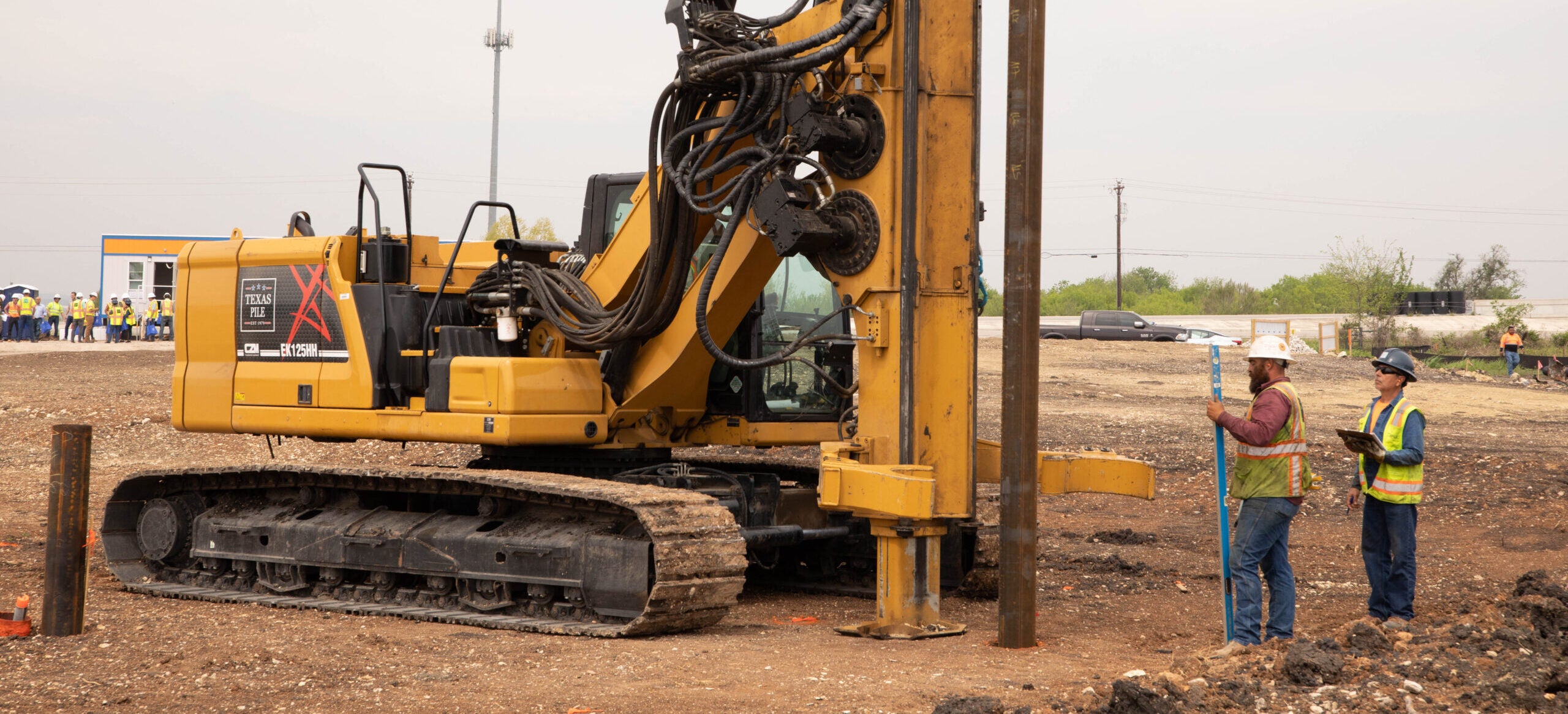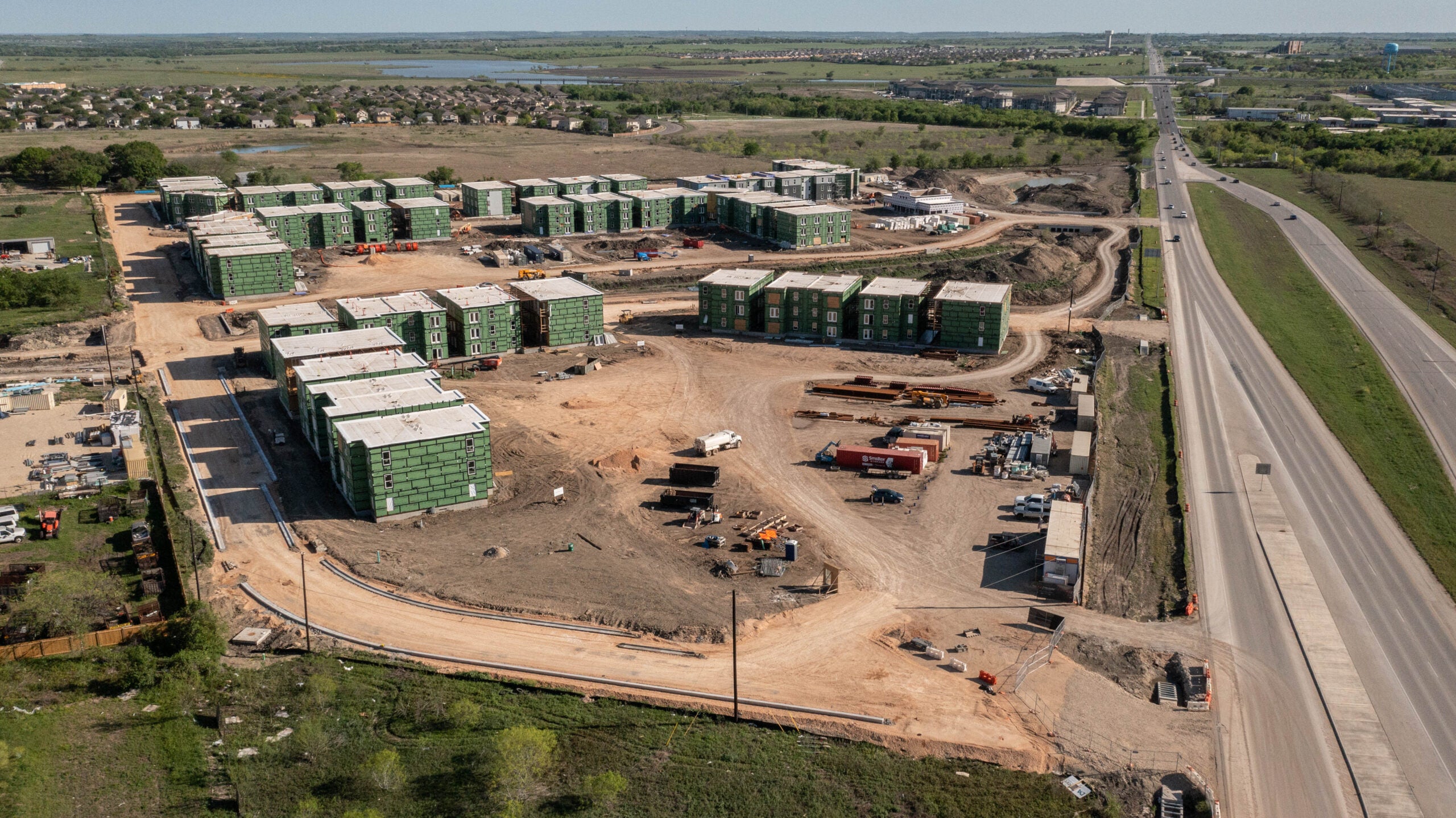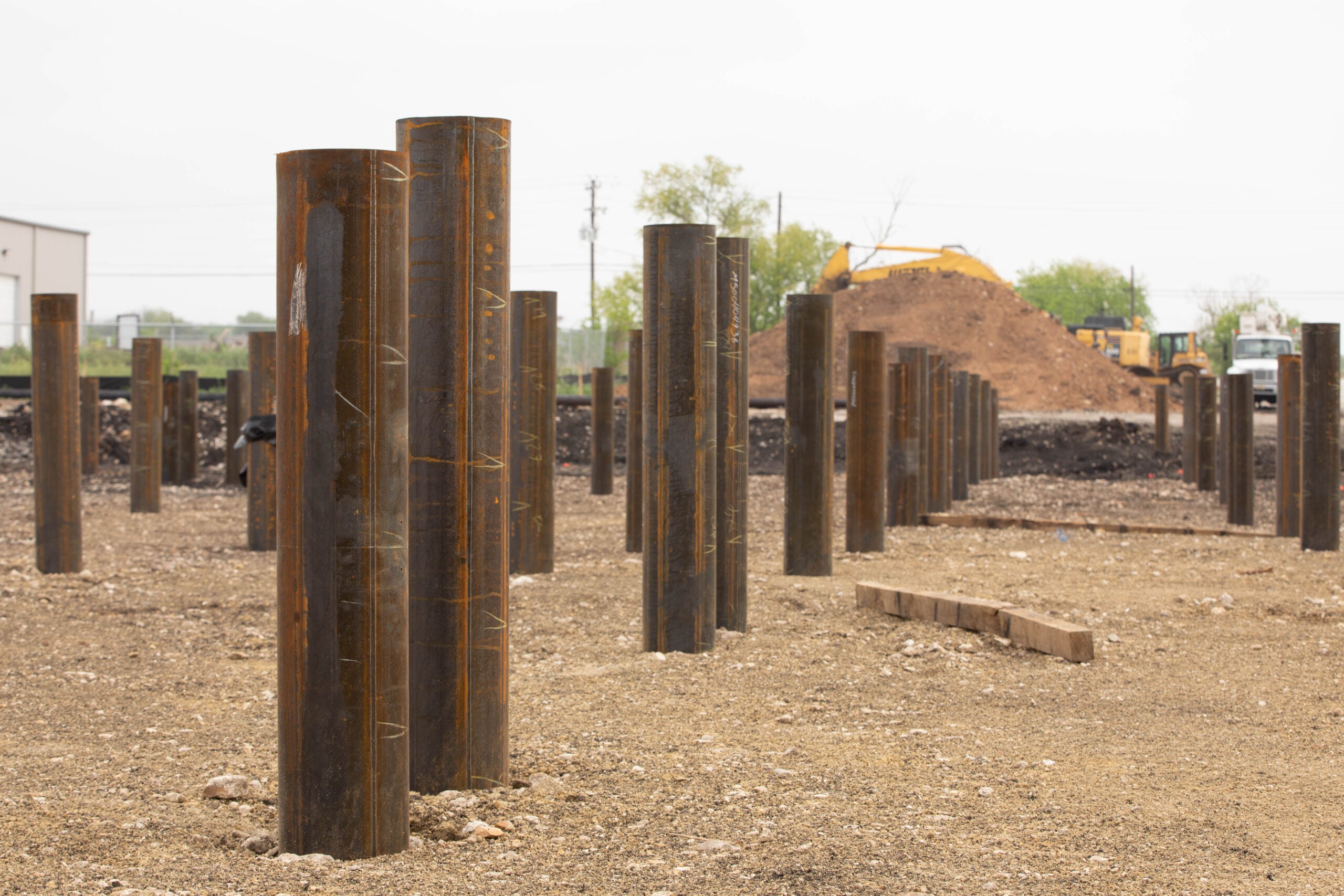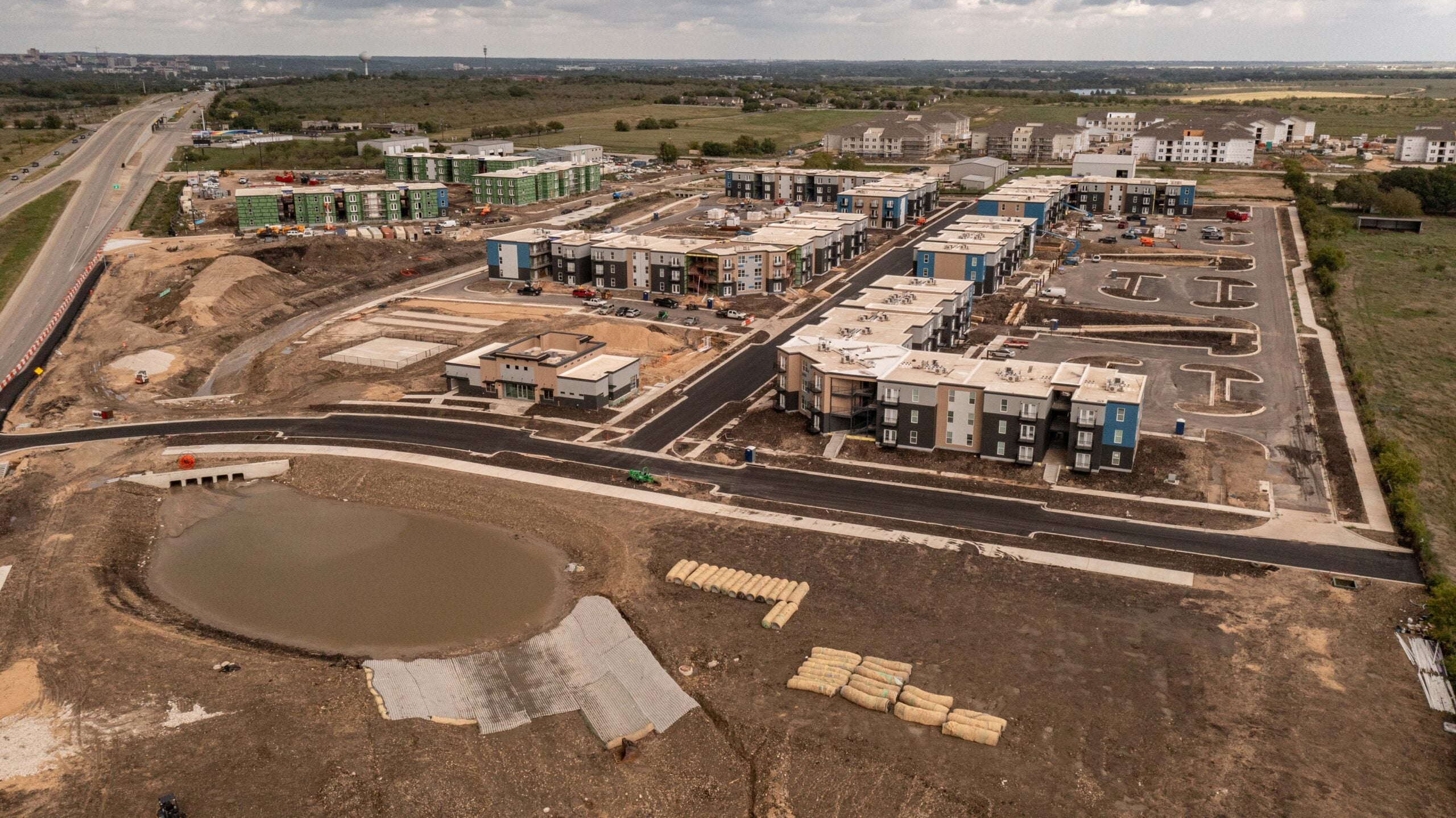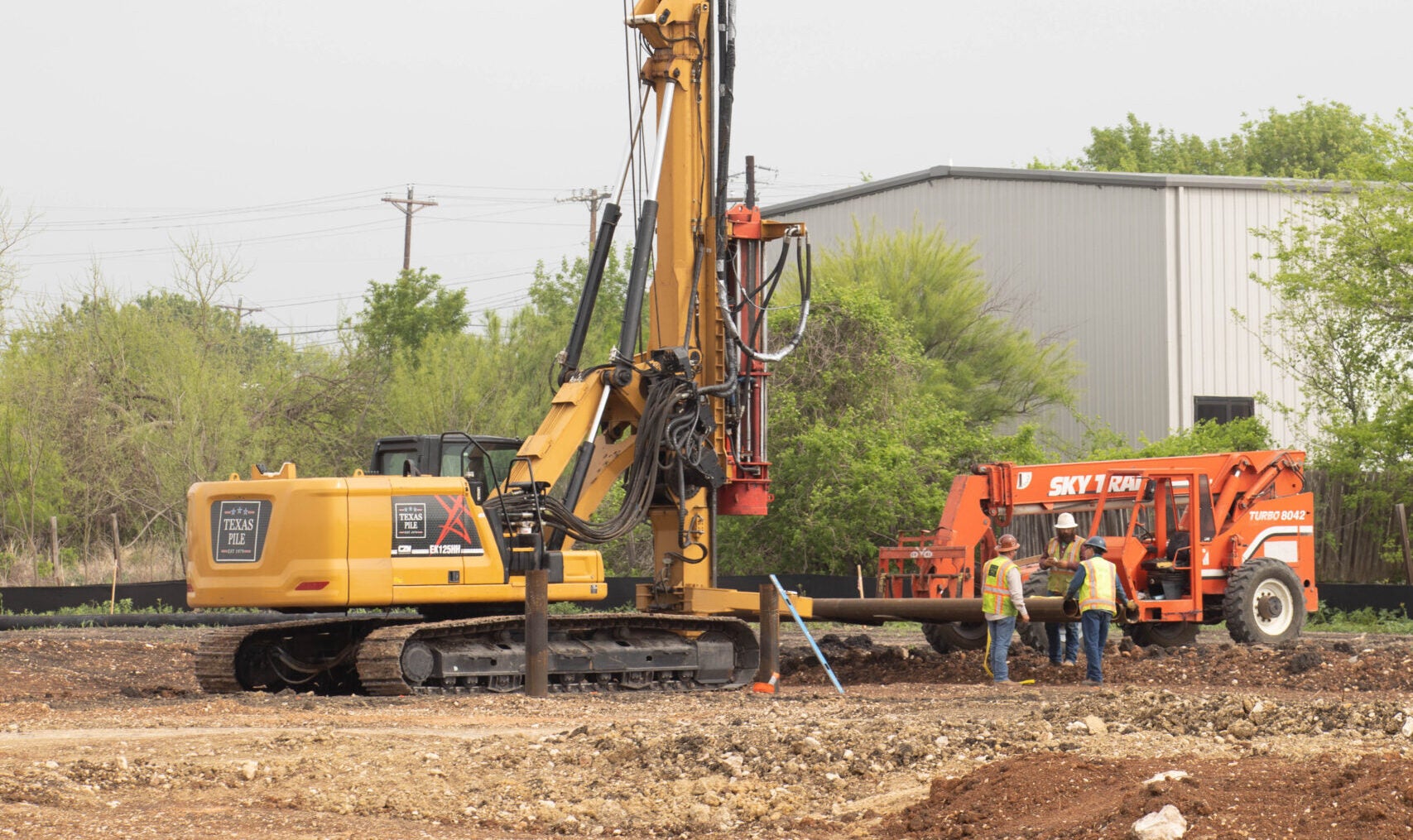Texas Pile, a driven pile and marine construction company based in Austin, Texas, completed a driven pile foundation for a Z Modular housing project in San Marcos, Texas. The eight-building multi-family apartment project consists of 448,000 square feet of indoor space across 19 acres, requiring 2,061 pipe piles with a design load of 59 kips. Texas Pile was brought into the project by Atlas Tube to evaluate the site’s soil conditions, make recommendations for pile specifications and design, and drive those piles. The decision to perform a pre-production test pile program would ultimately result in enormous cost and time savings for their project.
The challenge.
Like much of the central and southern United States, FLATZ 512 in San Marcos, Texas is situated on highly expansive smectite/montmorillonite clay soil that can present unique challenges to the construction process and requires careful planning and preparation.
The soil, combined with intense weather events and local considerations, like drainage and vegetation, can cause movement under the foundation and ultimately result in slab failures. In addition to soil conditions, Texas Pile also had to factor in a basement build-out and contend with a high water table, shallow rock layer and sloping terrain when designing and planning the pile foundation.
The right experience, the right test.
Having worked in the Texas region for many years, Texas Pile knew about the unique characteristics and challenges of the area’s expansive soil. After evaluating the static load and GRLWEAP test information, as well as the geotechnical engineer’s assessment, they suspected the larger drilled shafts recommended by the engineer were not the best suited or most economical for the job at hand. Texas Pile’s experience and tracked historical data led them to conduct a pre-production test pile program, which revealed that fewer, smaller driven piles were a better fit for the soil and structure requirements. Armed with the test results, Texas Pile was able to confirm that the driven pipe pile option could support 100 kips of load instead of the mere 18 recommended.
Digging into detail.
The Texas Pile team performed a dynamic test on 8-inch and 12-inch pipe piles at one hour and one day, as well as a static test at day seven. This led to a final design that included 2,061 8.625“ x .322” closed-ended pipe piles that were driven between 25- to 33-foot depths, allowing them to accommodate structural load and expansive soil conditions. The design also included over 100 longer pieces for the weak spots revealed in the production test pile program — something that would not have been accounted for or incorporated into the design if they had moved forward with drilled shafts as recommended. Texas Pile worked closely with Atlas Tube to finalize the design and procure the material. Atlas Tube attached the end plates and put together a custom delivery schedule to keep the project on track.
The results are in.
While Texas Pile expected a discrepancy between the recommendations they were provided at the outset of the project and the pre-production test they conducted, the final numbers were simply astounding. The pre-production test revealed that the original data significantly underpredicted the support capacity of the piles and ultimately led the team to move forward with driven piles instead of drilled shafts.
So what does that discrepancy in test results mean for the project’s bottom line? A savings of $5.61 million and a reduction of 16 weeks from the project schedule. Thanks to Texas Pile’s historical knowledge and the pre-production test pile program, the final design cost only $2.82 million and finished in just eight weeks with two dedicated piling rigs that allowed the crew to drive 40–66 piles per day.
Safety starts underground.
The enormity of both cost and time saved as a result of performing a soil test is hard to ignore. Had the project engineers chosen to move forward with their design solely based on the static test data, they would have left a tremendous amount of money on the table. While the San Marcos project undeniably supports the argument for more extensive soil testing in expansive clay soil, there are other benefits that should not be overlooked. Key among those is building safety.
Pipe piles play a critical role in a building’s structural integrity — therefore, choosing the right piles for its design, load and soil conditions is of the utmost importance. Failure to fully understand soil conditions and the stresses they put on piles can compromise a building’s safety. A soil test is a surefire way to illuminate any unknowns and ensure the engineering team is specifying the best pipe piles for the job.
Though the pre-production test pile program did have an upfront cost and took about a week to perform, the benefits far outweighed the cost, reducing the schedule by 16 weeks and saving the owner $5.61 million.

